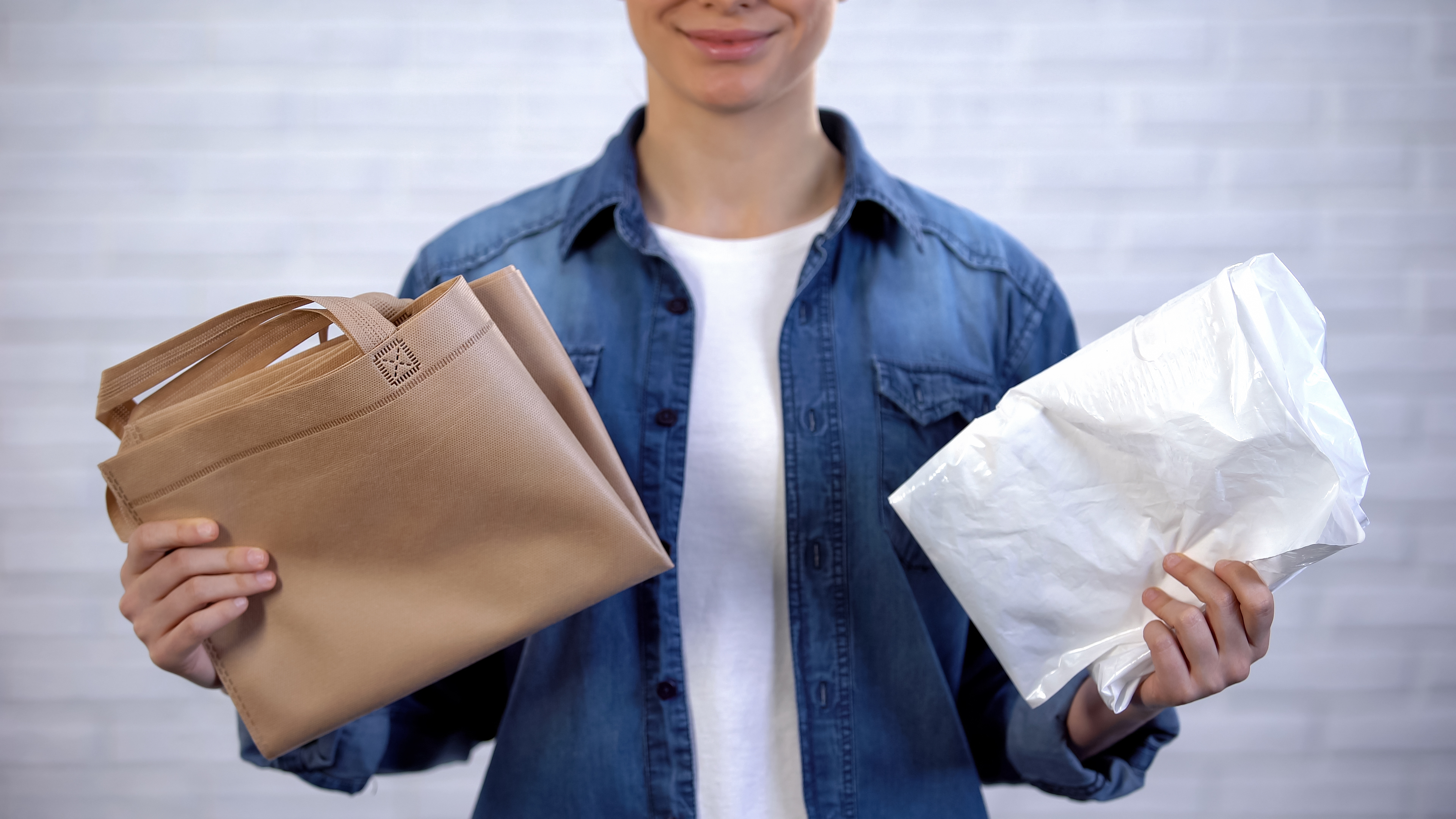
By DonaJayne Potts
Supermarkets across the United States are asking shoppers to leave their reusable grocery bags at the door amid the coronavirus outbreak. But does discontinuing the use of these bags actually reduce risk?
Ryan Sinclair, PhD, MPH, associate professor at Loma Linda University School of Public Health says his research confirms that reusable grocery bags, when not properly disinfected, are carriers for both bacteria, including E. coli, and viruses — norovirus and coronavirus.
Sinclair and his research team analyzed reusable bags shoppers brought to grocery stores and found bacteria in 99% of reusable bags tested and E. coli in 8%. Findings were first published in Food Protection Trends in 2011.
To reduce risk of possible bacterial and virus contamination, Sinclair asks shoppers to consider the following:
Don’t use reusable grocery bags during the coronavirus outbreak
Sinclair says supermarkets are a prime location where food, the public and pathogens can meet. In a 2018 study published by the Journal of Environmental Health, Sinclair and his research team found that reusable bags are not only highly likely to be contaminated but are also highly likely to transfer pathogens to store employees and shoppers, particularly at high-contact points like check-out conveyors, food scanners and grocery carts.
“Unless reusable bags are sanitized regularly — by washing with a disinfectant soap and high-temperature water in the case of cloth bags and wiping non-porous slick plastic models with a hospital-grade disinfectant — they present a significant public health risk,” Sinclair says.
Leave your leather purse at home too
Think about what you do with your purse at the grocery store. It typically gets placed in the shopping cart until it is set down on the payment counter at checkout. Sinclair says these two surfaces — where high volumes of other shoppers touch — make it easy for viruses to spread from person to person.
“Before grocery shopping, consider transferring your purse contents to a washable bag to allow for proper sanitization when you return home,” Sinclair says. “Bleach, hydrogen peroxide and ammonia-based cleaners are among the best for sanitizing surfaces; however, they can damage, lighten or cause cracking on materials like purse leather.”
After the outbreak, switch to cotton or canvas shopping totes
While polypropylene bags are one of the most common types of reusable bags sold at grocery chains, they are difficult to disinfect. Made from a more durable plastic than lightweight, single-use plastic bags, their construction material prevents proper sterilization with heat.
“Spraying bags with a disinfectant doesn’t reach the germs that are lodged in the crevices or accumulated on the handles,” Sinclair says. “Don’t purchase bags you cannot wash or dry on high heat; the best and easiest to use are totes made from natural fibers, like cotton or canvas.”
“Leaking milk, poultry juice and unwashed fruit can cross-contaminate other foods,” Sinclair adds. “Designate separate bags for specific food items to limit germ breeding grounds.”
The best way to disinfect bags
What’s the best way to disinfect reusable grocery bags? Sinclair recommends washing bags before and after trips to the market using these methods:
- Launder cotton or canvas totes in a washing machine on a high-heat setting and add bleach or an ammonia-based disinfectant like oxi clean.
- Dry totes on the highest dryer setting or use sunshine to sanitize: turn washed bags inside-out and place them outside in direct sunlight to dry — for at least an hour; turn right-side out and repeat. “Ultra-violet light occurs naturally from sunlight is effective at killing 99.9% pathogens like viruses and bacteria,” Sinclair says.
Healthy grocery hygiene habits
Lastly, Sinclair advocates these healthy grocery hygiene habits:
- Always wash your hands before and after grocery shopping.
- Sanitize shopping cart baskets and handles using disinfecting wipes or sprays.
- Once home, place grocery bags on a surface that can be disinfected after your groceries have been unloaded and immediately place plastic bags in the recycle bin.
- Keep in mind that disinfectants must stay on a surface at for a specific amount of time to be effective. It also depends on the disinfectant. The common ammonia-based grocery cart wipes need at least four minutes.
